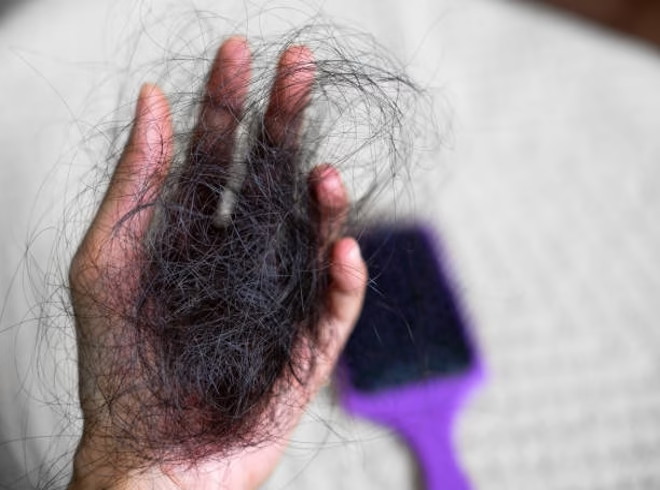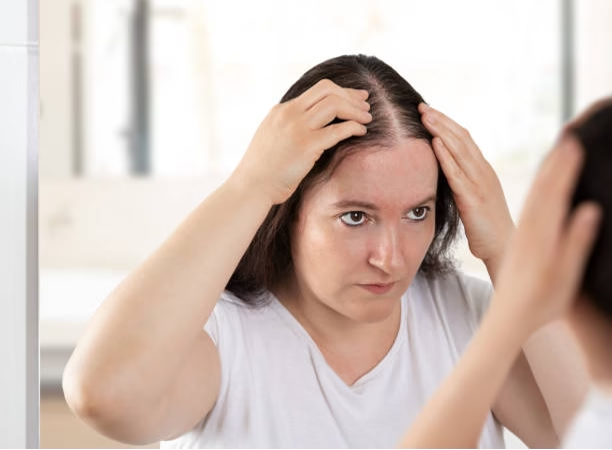Experiencing hair loss after childbirth is a common concern for many new mothers. This condition, known as postpartum hair loss, typically begins around three months postpartum and peaks at four to six months. However, for some women, hair shedding continues beyond the first year. Understanding the reasons behind this prolonged postpartum hair loss after 1 year and exploring effective management strategies is crucial.
Dr. Viral Desai, a renowned cosmetic and plastic surgeon in Mumbai, emphasizes that while postpartum hair loss is often temporary, persistent shedding beyond a year warrants professional evaluation. He notes, “If hair loss continues after one year, it’s essential to consult a specialist to rule out other underlying causes.”
With extensive experience in hair restoration procedures, including hair transplant in Mumbai, Dr. Desai offers comprehensive solutions tailored to individual needs. His expertise ensures that patients receive the highest standard of care and effective treatment options.
Is your hair still shedding a year after childbirth? Let’s explore the potential reasons behind prolonged postpartum hair loss.
Why Hair Loss May Continue After 1 Year

While hair loss after pregnancy is mostly associated with hormonal changes, other issues could make it persist beyond the first year:
- Nutritional Deficiencies: A lack of essential nutrients, such as iron, vitamin D, and biotin, can hinder hair regrowth.
- Thyroid Imbalances: Hypothyroidism or hyperthyroidism can lead to hair thinning and loss.
- Chronic Stress: Chronic stress can disrupt the hair growth pattern and lead to steady shedding.
- Underlying Conditions: Conditions such as alopecia areata or androgenetic alopecia may cause persistent hair loss.
Addressing these factors is crucial for halting prolonged hair shedding and promoting healthy hair regrowth.
Concerned about ongoing hair loss? Connect with a specialist to identify the underlying cause and explore appropriate treatment options.
Looking for ways to manage persistent hair loss? Let’s explore effective treatments and management strategies.
Treatment & Management Options
For postpartum hair loss after 1 year, several treatment options can help:
- Minoxidil: This is among the highest rated hair regrowth remedies. This FDA-approved hair solution for topical use enhances hair development by stimulating hair follicles and improving hair’s growth pattern.
- Platelet-Rich Plasma (PRP) Therapy: Non-surgical hair restoration with growth factors from your own blood to stimulate hair regrowth. PRP thickens hair and increases hair density.
- Nutritional Supplements: Taking supplements like biotin, iron, vitamin D, and zinc can help support hair growth and correct any deficiencies.
- Laser Therapy: It helps stimulate hair roots and improve scalp blood circulation and support hair regrowth.
- Stress Management: Meditative activities, exercise in yoga, and relaxation therapy will reduce stress considerably, one reason for hair loss.
Is your hair loss more than just postpartum shedding? Let’s discuss signs that warrant further investigation.
Signs It May Not Be Just Postpartum Hair Loss

While postpartum hair loss is typically temporary, certain signs may indicate other underlying conditions:
- Patchy Hair Loss: Localized bald spots may suggest alopecia areata.
- Excessive Thinning: Widespread thinning could be a sign of androgenetic alopecia.
- Scalp Inflammation: Redness or irritation may indicate scalp infections or dermatitis.
- Rapid Progression: Sudden and severe hair loss requires immediate medical attention.
“If you notice any of these symptoms, it’s crucial to seek professional evaluation to determine the appropriate course of action,” advises Dr. Viral Desai, a distinguished cosmetic surgeon in Mumbai.
Unsure when to seek medical advice? Let’s clarify the signs that indicate it’s time to consult a doctor.
If you’re experiencing persistent or unusual hair loss, get in touch with a specialist to discuss your concerns and explore treatment options.
Conclusion
Postpartum hair loss is a common experience for many new mothers, typically resolving within six to twelve months. However, if hair shedding persists beyond a year, it’s essential to consult with an expert, such as Dr. Viral Desai, to identify any underlying causes. Early diagnosis and appropriate treatment can help restore hair health and prevent further loss.
Frequently Asked Questions
Is postpartum hair loss permanent?
No, it’s typically transient and clears in six to twelve months.
Can stress cause excessive hair shedding after delivery?
Yes, stress itself can interfere with the hair growth cycle and cause constant shedding.
How long does it take to see results from hair restoration treatments?
The results differ, yet achievable, visible positive changes take place in three to six months.
Is it normal to experience hair loss during breastfeeding?
Yes, hormonal changes in milk production might lead to hair loss.
Can hair loss be a side effect of medications taken postpartum?
There are some drugs whose side effects include hair loss; if this occurs, please consult your physician.
Can hair loss be a sign of a thyroid problem?
Even thyroid disorders may cause hair loss and hair weakening.
Are there any cosmetic treatments to conceal hair thinning?
Thickening products and hair fibers can conceal spots where hair is falling.
Disclaimer: The information shared in this content is for educational purposes only and not for promotional use.


